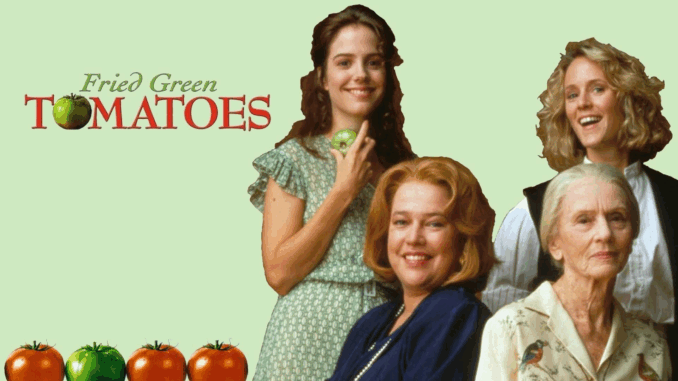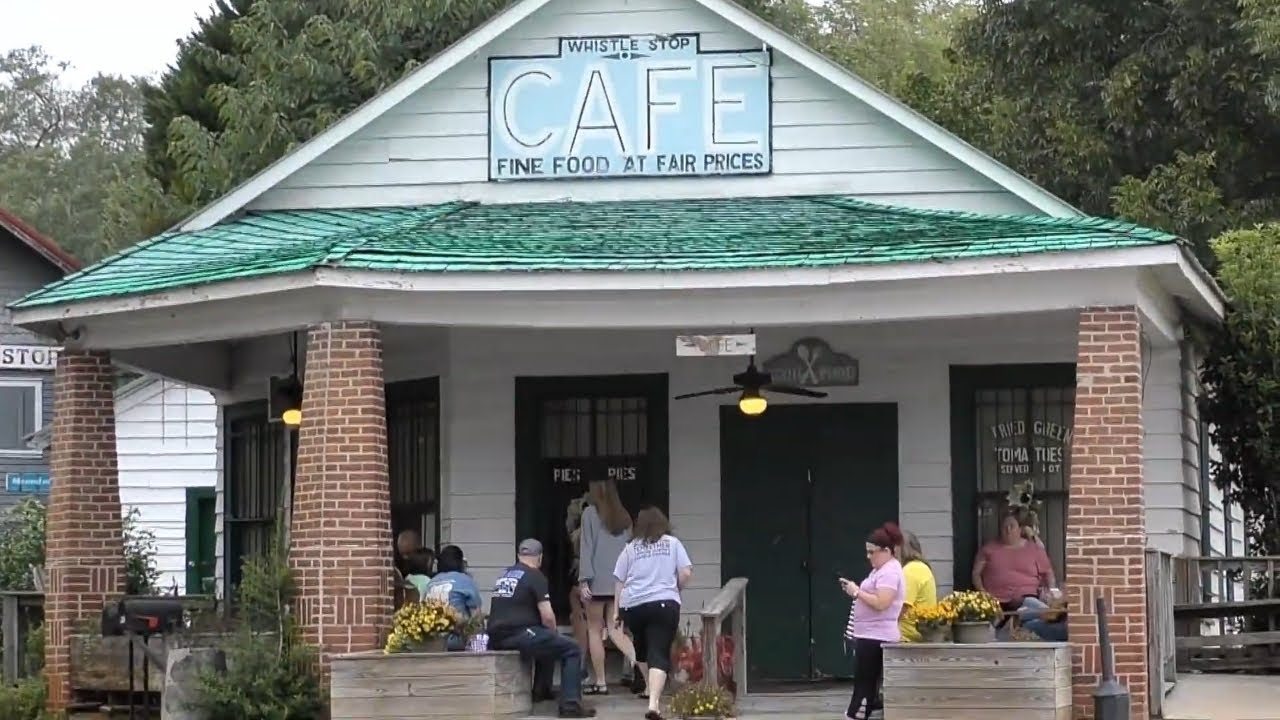
Before Fried Green Tomatoes became a beloved film and a cultural touchstone of the American South, it had a very different name — Whistle Stop Café. That was the title of the original screenplay, inspired directly by Fannie Flagg’s 1987 novel Fried Green Tomatoes at the Whistle Stop Café. The early drafts focused more on the café itself, the small-town community surrounding it, and the quiet resilience of the women who ran it. But when Universal Pictures stepped in, they decided the title needed something more — something that would spark curiosity and linger in people’s minds. And so, Fried Green Tomatoes was born.
At first glance, the new title seemed unconventional, even odd. Studio executives worried audiences might not understand it, or worse, think it was a cooking show. But the phrase had a particular charm — warm, nostalgic, and distinctly Southern. It invited questions: What’s the story behind those fried green tomatoes? Who made them, and why do they matter? That sense of mystery turned out to be its greatest strength.
In the years since the film’s 1991 release, Fried Green Tomatoes has become far more than a title — it’s become shorthand for a way of life. The film’s themes of friendship, courage, and belonging resonated deeply with viewers, and the dish itself transformed into a cultural emblem of Southern hospitality. Across the South, countless diners and roadside cafés proudly serve “fried green tomatoes” as both a menu item and a quiet tribute to the movie that made them famous.

What’s remarkable is how the title mirrors the film’s own heart: simple, homespun, and layered with meaning. Much like the dish — humble in appearance, yet rich in flavor — the story of Fried Green Tomatoes celebrates the overlooked beauty in everyday lives and the quiet power of community. The name captures that feeling perfectly: it’s earthy, evocative, and impossible to forget.
Fannie Flagg herself once said that she never expected fried green tomatoes — a food she grew up eating in Alabama — to become a symbol of Southern identity. “It was just something we had at Sunday dinners,” she recalled, “and now it’s everywhere. But I think that’s fitting, because that’s what the story was always about — something ordinary that turns out to be extraordinary.”
By renaming the film, Universal inadvertently gave it the very spark that ensured its place in pop culture history. Whistle Stop Café might have been true to the book’s setting, but Fried Green Tomatoes had something more — an irresistible mix of mystery, warmth, and flavor. Today, it stands not just as a movie title, but as a phrase steeped in memory and meaning — a reminder of the friendships, laughter, and quiet strength that define the Southern spirit.
From that simple plate of fried green tomatoes, an entire legacy was born. The name may have changed, but its heart — full of love, resilience, and the taste of home — has never faded.
